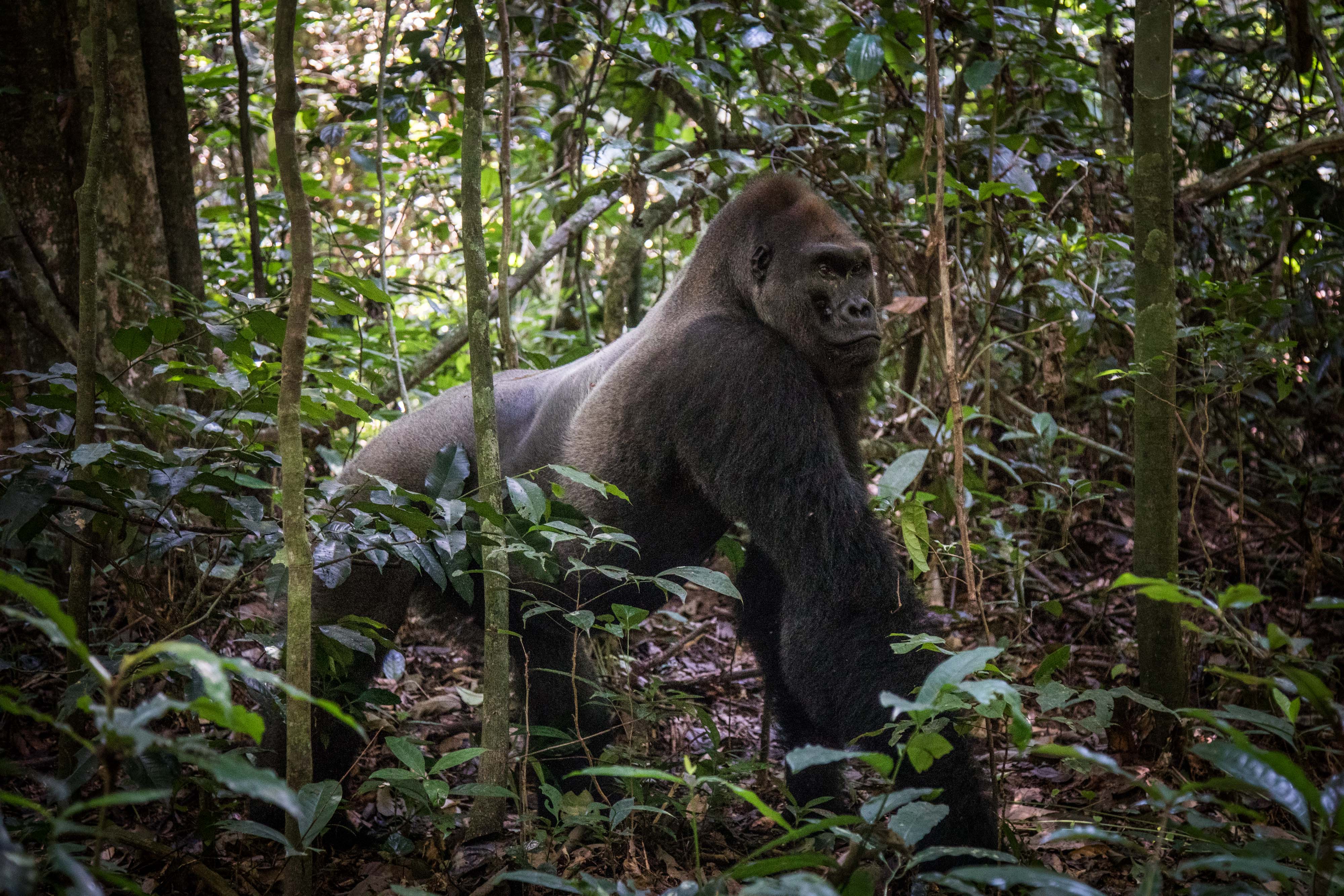Kingo, one of the world’s most beloved lowland gorillas who inspired three decades of conservation, has sadly passed away at the grand old (estimated) age of 45. His body was found in Djéké Triangle Forest, Republic of Congo, on December 26, 2023, and his death is believed to be related to his advanced age.
The elderly ape was something of an icon, having gained international fame after being featured in articles from the BBC, National Geographic, and, of course, IFLScience. His conservation credentials include inspiring the protection of his home – Congo’s Nouabalé-Ndoki National Park – and all of its wildlife, something that his legacy will undoubtedly continue to do.
“Kingo’s legacy is immense,” said Jancy Boungou, a research assistant for the Wildlife Conservation Society’s (WCS’s) Mondika Gorilla, who followed Kingo until his last days, in a statement seen by IFLScience. “He has always inspired me and my colleagues to protect gorillas and the Nouabalé-Ndoki National Park.”
Kingo first captured people’s hearts in the 1990s when researchers based in New York began studying him to gain insight into Western lowland gorillas (Gorilla gorilla gorilla), which were, at that time, one of the least understood great apes. Thanks to Kingo’s distinctive bark, his group could be located, and so began the world’s decades-long fascination with him.
Since then, more than a dozen documentaries and almost 50 scientific articles have included Kingo, who is named after the Ba’aka expression “kingo ya bolé”, which means “he who has a loud voice”.
The WCS took over research into the species in 2006.
“Kingo has enabled a better understanding [of] Western lowland gorilla ecology and behavior; and, through tourism, created a pathway to sustainable livelihoods for Indigenous Peoples and local communities in the area,” said WCS’s Ben Evans, Director of Nouabalé-Ndoki National Park.

RIP to a real one.
Image credit: ©Scott Ramsey
Western lowland gorillas are listed as Critically Endangered by the IUCN, meaning conservation efforts, such as those sparked by Kingo, are vital. In his time, Kingo also inspired efforts to protect other wildlife in the national park, which includes more gorilla species, as well as forest elephants, chimpanzees, bongo, and sitatunga.
At 45, Kingo had a relatively long life for a gorilla. In the wild, they usually live for around 35-40 years, although they can live longer in captivity, sometimes for over 50 years. But it wasn’t just his longevity or contribution to conservation that were noteworthy:
“Even by gorilla standards, Kingo was a physically impressive silverback with massive arms and broad shoulders that powered his confident swagger through the dense forests of the Congo Basin,” added David Morgan, Director of the Goualougo Triangle Ape Project, which has supported WCS efforts for more than 10 years.
“Generations of silverbacks have visited those same trees over hundreds of years, but it is unlikely that any were as successful in their tenure as Kingo.”
Source Link: RIP Kingo: Iconic Lowland Gorilla Who Inspired Conservation Dies Of Old Age